The human brain is a marvel of biological engineering, and it is one of the most important things that make you, you. It is undeniable that artificial intelligence is evolving at a rapid pace and is poised to take over every aspect of our lives. In fact, some AI applications have already taken over a huge number of jobs and are poised to conquer more.
In the world of artificial intelligence, one of the most considerable areas is education. It is changing the world of education by making it more effective and efficient. In the future, AI will be used to create a more inclusive learning environment so everyone can understand the world better. Artificial Intelligence in education is starting to show its power, and the benefits are real.
How Are Artificial Intelligence Applications Used In The Education Industry?
Artificial intelligence is appearing everywhere, from self-driving cars to Google’s new AI chatbot, to drones helping to improve farmers’ harvests. AI is also being used to help tackle some of the world’s biggest problems, such as climate change and helping the disabled. One of the most surprising forms of AI is being used in the education industry, as computers and robots are able to help teachers and students learn and perform better.
For instance, AI is being used to provide better feedback to students, teachers are using AI to improve their classroom management, and AI is being used to bring reading to tens of millions of children in developing countries. In addition, researchers are trying to use AI to simulate the growth of individuals and improve the productivity of the workforce.
So, let us have a look at some of the AI applications that will assist the education industry.
AI-Enabled Hyper Personalization
As artificial intelligence (AI) technology becomes more advanced, the opportunities to transform learning are only becoming more apparent. Hyper personalization, for example, is a technology in which linked hardware and software can provide students with individualized and personalized learning services, based on their level of interest, knowledge, and aptitude.
Adoption Of Voice Assistants
The world of artificial intelligence is moving at a dizzying pace. From the rise of personal assistants and the internet of things to the next generation of smart speakers, the future of technology is in our hands. One of the biggest players in the game is the voice assistants. Voice assistants such as Alexa, Google Assistant, Siri, and Cortana are making their way into classrooms and being used for various educational purposes. Modern educational institutions are finding ways to use this technology assistant in their classrooms. The context in which they are used varies, but they have the potential to be transformative.
Assisting Educators With Organizational Tasks
Along with teaching, educators need to handle a lot of organizational tasks. They are often required to manage non-teaching responsibilities like grading of exams, essay evaluation, personnel-related issues, filing the necessary paperwork, managing classroom materials, responding to parents, managing field trips, assisting with conversation-related problems, dealing with absent students, etc. Approximately 50% time of the educators is spent in performing non-teaching tasks.
Artificial intelligence systems can help a lot in managing these back-office tasks efficiently. The technology can assist in handling routine and repetitive paperwork, grading activities, dealing with logistics-related matters, providing personalized responses to students, and other personnel tasks. Also, AI systems can provide a first-line interaction with guardians or parents, giving them access to resources or feedback as required for routine matters. This will provide more time to teachers so that they can focus on more important things.
Scoring And Feedback System
Feedback is a way to measure improvement, and scoring systems are a way to measure performance. Both are important for learning environments since they can help creators, teachers, and learners know if they are making progress. With AI and ML technologies, feedback systems can be more accurate, and scoring systems can be easier to use.
Smarter Scheduling Tools
The sky’s the limit when it comes to the benefits of using artificial intelligence technology in education. These tools will help students with their individual needs and give them a chance to flex their learning muscles beyond their classroom walls. With the right tools, students not only get to practice what they learn, but they can also ask questions and get immediate answers.
Smart Open Content
The evolution of the Internet has brought about a change in the way we learn. The education world has relied on a few traditional methods for teaching students, including lectures, textbooks, and individualized lessons. But, slowly the education sector is undergoing a transformation thanks to the availability of digital content. Digital learning has opened up access to content and information. This digital access to information has the power to enhance learning and make it more engaging.
The Scope Of Artificial Intelligence In Education
In the not-so-distant future, artificial intelligence will be the core component of all educational experiences. The technology has started to show its application and benefits in a huge spectrum of educational needs. In the life to come, AI will considerably enhance the overall learning experience for all.





